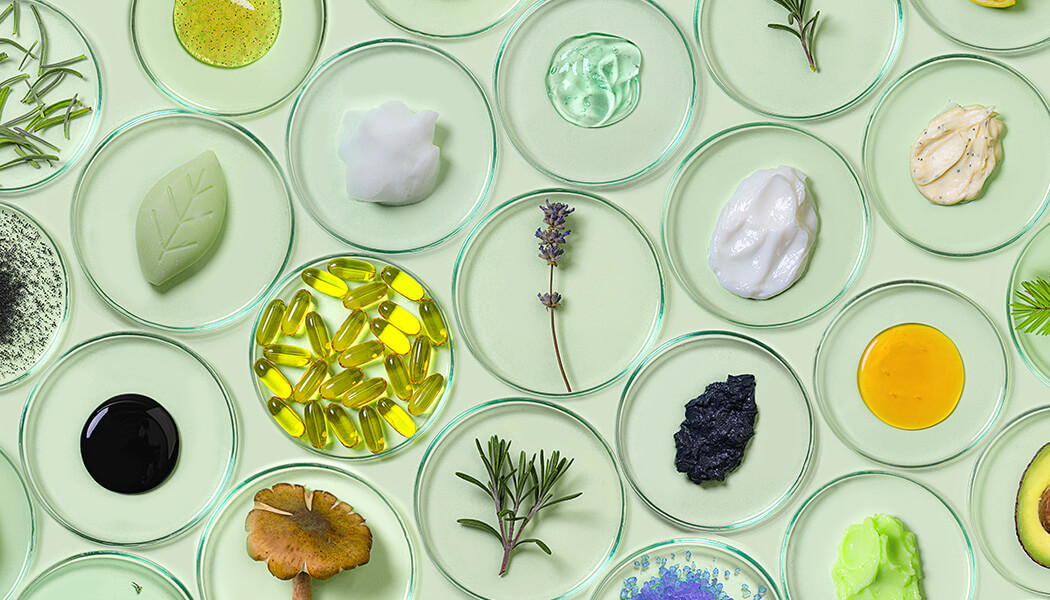- Association
- Cosmetics
- Detergents & cleaning products
- Members, Brands & Products
- Expert groups
- Laws & authorities Switzerland / EU
- Consumer Informations
- Sustainability
- Dates & Events

Innovation for well-being and beauty
The Swiss cosmetics industry is renowned for its innovation, excellent quality and safety, making it a major player in the global cosmetics market.
The early years
As early as the nineteenth century, Switzerland's artisanal soap production, which was de-pendent on imported raw materials, was transformed into industrial production. Following initial experiments with the production of synthetic fragrances by Basel tar dye factories in the second half of the nineteenth century, Switzerland's own fragrance industry emerged from the 1890s. To this day, this industry continues to produce both natural and mainly synthetic fragrances and flavourings, which are important ingredients and additives in the cos-metics industry.
The export-oriented industry is characterised by a high degree of specialisation, closely linked to scientific laboratory research into the creation of new fragrances and compatibility tests, sometimes in collaboration with universities. Pioneers such as chemists Philippe Chuit, Léon Givaudan and Leopold Ružička shaped the research that led to new synthetic fragrances after analysing natural odour carriers.
The global reputation of the Swiss perfume industry and the dominant market position of its largest companies are the result of scientific discoveries. At the same time, Switzerland has seen the emergence of a diverse cosmetics sector alongside the perfume industry.
Research in Switzerland and Europe
Today, research and development programmes cover a wide range of topics, from studying consumer behaviour and beauty standards to skin and hair biology and developing new technologies and sustainable production methods.
Innovation takes time in our industry. It can take up to three years of innovative research and formulation to bring a new product to market.
It is also not static, with a quarter of all cosmetic products on the market being improved or totally redeveloped each year. The number of patents filed is a reliable indicator of this con-stant innovation.
The latest trends
The twentyfirst century marks an era of groundbreaking scientific innovation in the cosmetics industry. Sustainability efforts are also resulting in a large number of innovations. Innovation is also increasingly moving towards zero waste, safe chemicals and a circular economy.
But with every innovation comes the growing challenge of surpassing the industry's previous achievements. Gone are the days when it was enough to make a product more skin-friendly or add a new fragrance.

